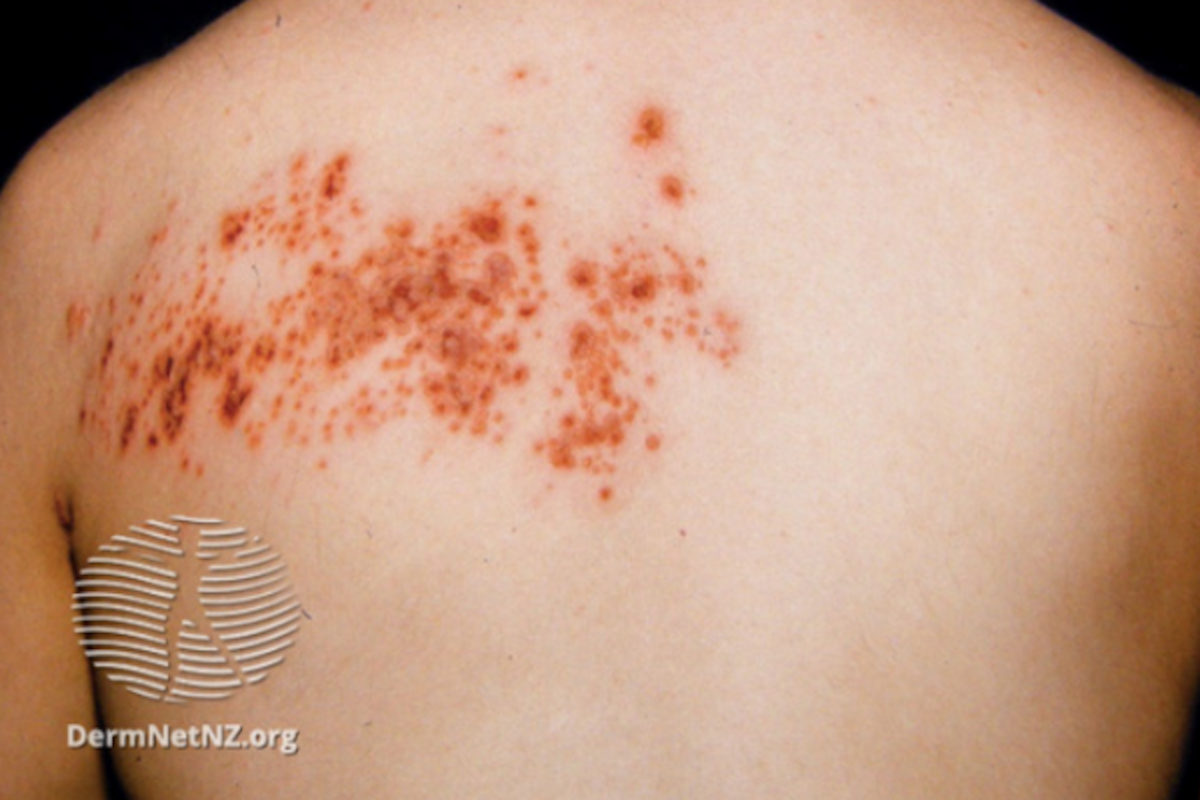Greater Awareness of Shingles Complications Risk Needed
Sandy Beech
08 October 2024, 5:01 PM
 Shingles Raises Concerns for Older Kiwis. Image: Dermnet NZ
Shingles Raises Concerns for Older Kiwis. Image: Dermnet NZHaving recently had shingles myself—and still in recovery—I’m here to share why awareness of this virus is so crucial for our community, especially for those of us over 50.
Shingles can be more than just a painful rash; it can lead to severe complications that impact quality of life, especially for older Kiwis and those with weakened immune systems.
Shingles is caused by the reactivation of the varicella-zoster virus (VZV), the same virus responsible for chickenpox.
While most adults may carry this virus, it can reactivate in around one in three people, resulting in painful symptoms.
Infectious disease specialist Dr. Hasan Bhally is raising the alarm, especially as our ageing population grows, with an estimated one million Kiwis over 65 by 2028 and potentially 1.5 million by the 2050s.
According to Dr. Bhally, awareness of shingles and its potential complications is vital.
He explains, “Shingles complications can be extensive and impact long-term health. Awareness is crucial for early diagnosis and treatment.”
The primary symptom of shingles is a rash that can wrap around one side of the face, trunk, or body.
While the rash itself can be uncomfortable, about 30% of those affected develop postherpetic neuralgia (PHN), a type of nerve pain that can linger for months or even years after the initial outbreak.
For some, PHN can cause intense, persistent pain, potentially leading to anxiety and depression.
Other potential complications include encephalitis (a brain infection), eye infections known as herpes zoster ophthalmicus, and in rare cases, cardiovascular issues.
Dr. Bhally notes that early diagnosis can help reduce the severity of symptoms and prevent further complications.
“Recognising the unique pattern of the shingles rash allows for early treatment, which is key,” he says.
In New Zealand, the shingles vaccine, Shingrix, is funded for those aged 65 and older, yet access remains limited for people aged 50 to 64, despite the heightened risk in this age group.
Brett Marett, medical director at GSK NZ, highlights this concern: “While it’s important that access to funded Shingrix is available for immunocompromised people, people over 50 years are also at an increased risk of developing shingles. We are continuing to work with Pharmac in this space.”
With Pharmac recently expanding access to certain high-risk individuals, Marett underscores the need for broader availability, stating, “People over 50 remain at increased risk. Expanding vaccine funding to this age group would help protect many more people.”
For those curious about their risk, Dr. Bhally recommends discussing vaccination options with a GP to determine the best course of action.
As our understanding of shingles grows, so does the importance of protecting ourselves and others from its potential effects.



